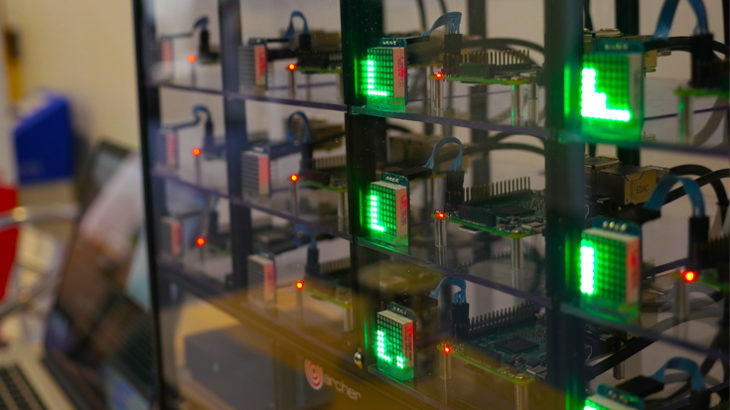Bringing HPC Alive

Last Thursday 21st April, Oxford Advanced Research Computing (ARC) and SES hosted the annual ARC High Performance Computing Showcase at Oxford E-research Centre to feature some of the largest research projects utilising HPC in Oxford. With speakers from The University of Oxford, Swansea University, Lenovo, and Jacobs University, Bremen, the event showcased how researchers are tacking scientific challenges using HPC.
Dr. Ben Evans (Swansea University) reprised last year’s visit from Bloodhound SCC, updating guests on the design of their 1,000mph car and explaining how CFD has been essential to understanding phenomena in the accelerating stage of the vehicle (see simulation below). This information is critical when attempting to travel at the speed of sound (click here to see the car in-action.
Visiting from Bremen (Max Planck Institute for Marine Microbiology) was Antonio Fernandez-Guerra, a post-doctoral researcher whose work involves collecting specimens of ocean water. In collaboration with scientists around the world, Fernandez-Guerra samples ocean water near coastal areas for analysis, on what is known as Ocean Sampling Day. With 191 sites internationally, the project is gathering large amounts of data on the contents of this water to contribute to understanding of microbial diversity. As most other sampling sites are currently located in deeper sea, this project lends additional information from a less-expected, but closer to home resource.
Since 40% of the world’s population lives within 100km of the coast, Fernandez-Guerra described the project as an important step to understanding life in the oceans and how the impact of humans is effecting our environment and waters. We need to look to the ocean further, as in Fernandez-Guerra’s words, “why is it ‘the earth is 70% covered in water’, it should be, ‘the water is 30% covered by earth’ “!
A key part of the HPC Showcase was the Poster Competition, sponsored by Lenovo, where over 20 Oxford researchers were excited to share their research and work on HPC, as well as a visit from the Edinburgh Panel Computing Centre who brought along ‘Wee Archie’, a suitcase-sized supercomputer, constructed from 18 Raspberry Pi 2’s. Wee Archie is a demonstration computer, designed to educate guests on how a supercomputer works and give them an inside look at the electronics behind a typical computer.
We look forward to another exciting event next year and wish all speakers success in their research throughout 2016.

